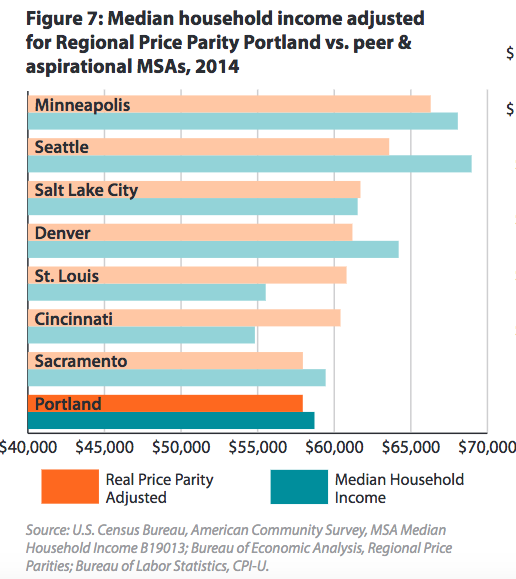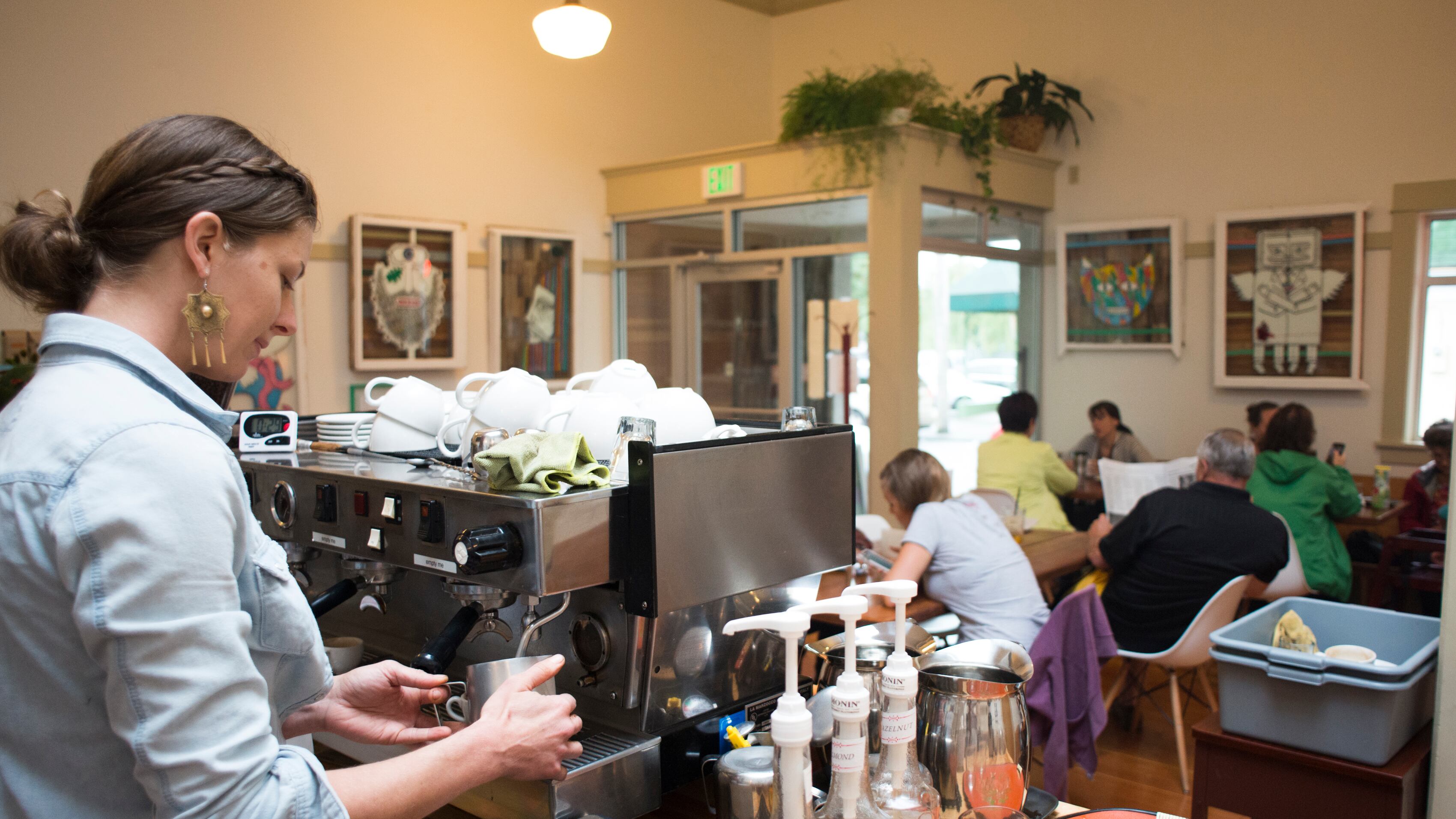The annual Value of Jobs report provides a concise snapshot of the Portland region's economy—and this year, the news is mostly good.
“Today, the Portland-metro job market remains strong with a total of
165,950 new jobs added since the depth of the recessionary losses,” the report from a coalition of industry groups led by the Portland Business Alliance reads. “In a change from last year’s Economic Check-Up, nearly every
industry, with the exception of manufacturing, has recovered the
total number of jobs lost in the recession.”
Portland’s median household income is higher than all but Salt Lake City in the group of peer cities the report uses as benchmarks.

But compared to some cities Portland might like to emulate—those with more robust economies—the comparison is less flattering.

The good news about the strength of Portland’s economy is tempered by a couple of factors: First, not everybody is sharing in the good times.

The second problem is that costs are going up just about as fast as incomes. That means while people in the region are making more money, they have to spend it on ever-more expensive housing, leaving Portland as the least affordable city in the report, which was prepared by ECONorthwest, a Portland economic consulting firm.


